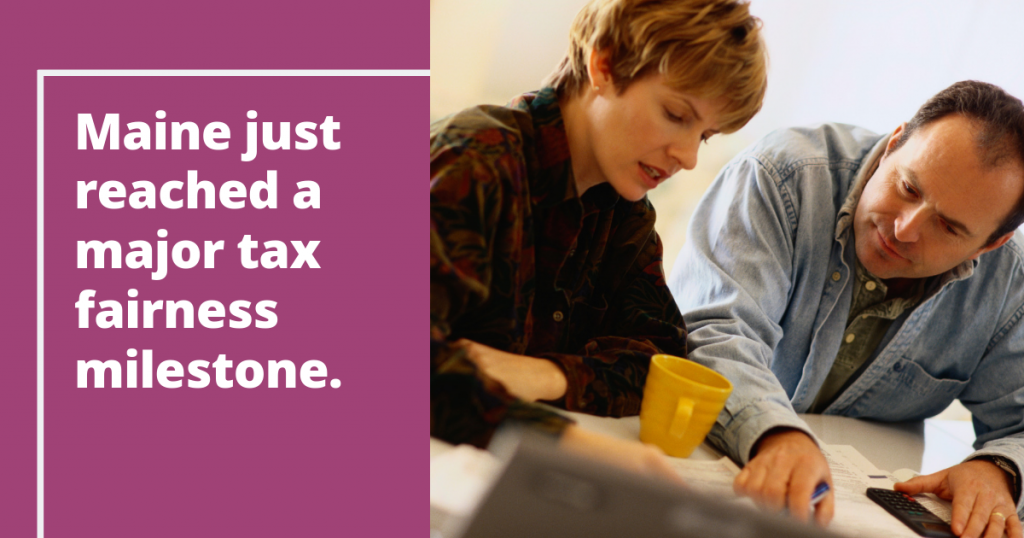A fair tax system asks those who benefit the most from our economy to contribute proportionately toward investments that ensure future generations can also thrive. But since at least 1996, this basic element of equitable taxes policy has been turned on its head in Maine. For decades, the wealthiest Mainers have paid less of every dollar they earned to state and local taxes than those who earn the least.
Now, new analysis from MECEP reveals that Maine has reached a milestone on the road toward fair taxes: Starting in 2020, the bottom 40 percent of Mainers will no longer pay a larger share of their income to taxes than the top 1 percent.
This victory for tax fairness is the result of three tax policies the Maine Legislature enacted this year:
- an expansion and modernization of Maine’s Earned Income Tax Credit, or EITC;
- a boost to the Property Tax Fairness Credit, or PTFC; and
- an increase to the Homestead exemption.
MECEP’s latest policy brief — “Tax policies enacted in 2019 bring Maine to major tax fairness milestone,” by policy analyst Sarah Austin — describes how those policies reduce taxes and, in the case of the EITC and PTFC, will lead to larger state tax refund checks for low- to moderate-income families. For some filers, it could mean an additional $500 during tax season to help cover the increased cost of essentials such as health care or child care, or to pay for things that make it easier to keep working, such as car repairs.
Maine now joins a select group of states that have achieved this basic measure of tax fairness. In 2018, just five states and the District of Columbia had tax codes in which the bottom 20 percent paid a lower average effective tax rate than the top 1 percent.




